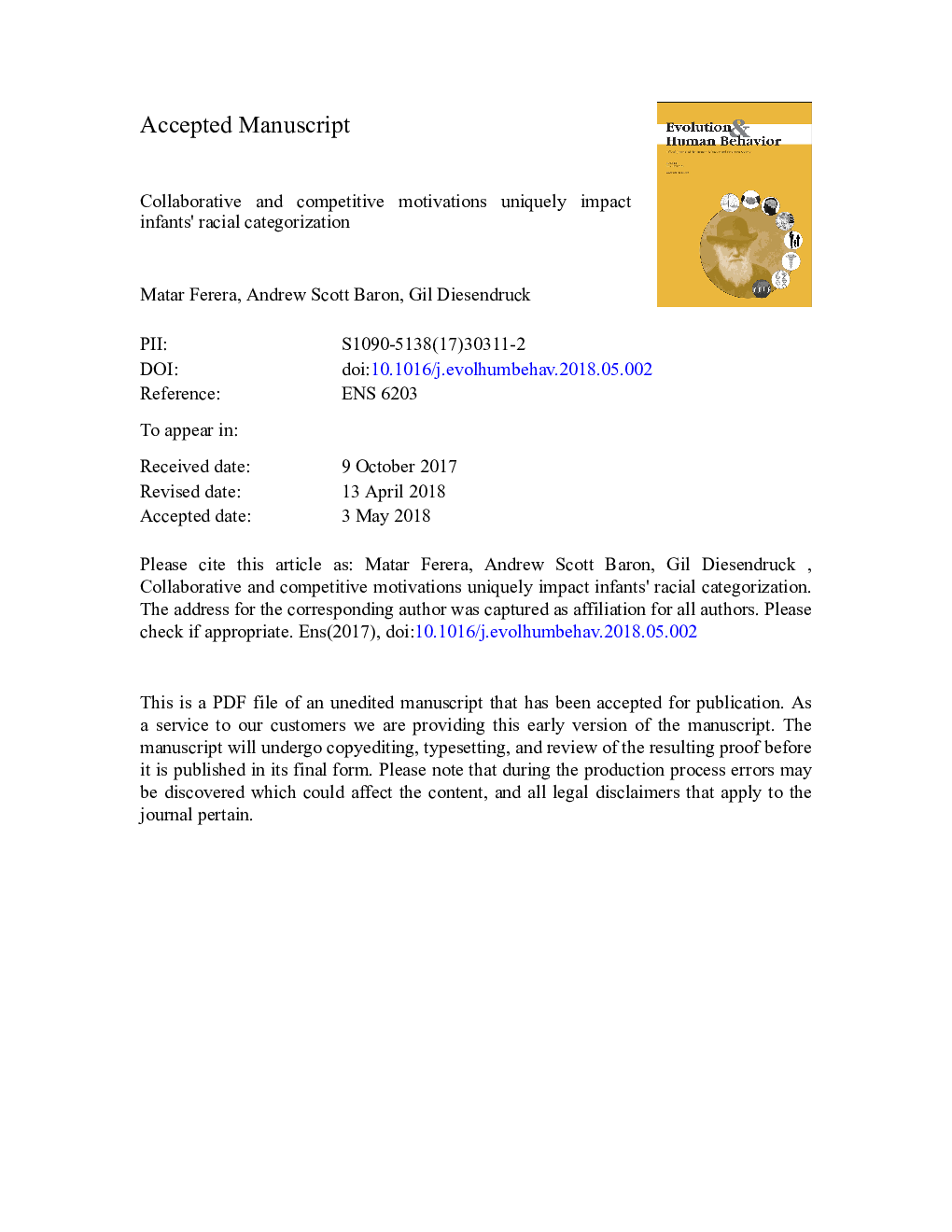| Article ID | Journal | Published Year | Pages | File Type |
|---|---|---|---|---|
| 7316134 | Evolution and Human Behavior | 2018 | 40 Pages |
Abstract
Human history has been plagued by violent inter-group conflicts. Such conflicts are arguably grounded on group biases - particularly, a tendency to favor “ingroups” over “outgroups” - manifested in adults, children, and infants. A question these findings prompt is what motivates social categorization? Here it is shown that priming 14-month-old infants (Nâ¯=â¯144) with collaborative or competitive interactions affects their capacity to form racial categories, and that this effect varies according to the gender of the exemplars being categorized. Specifically, whereas racial categorization of women was facilitated by collaboration, racial categorization of men was facilitated by competition. The presence of these differential effects in infancy is consistent with the idea that social categorization is driven by fundamental functions of group relations.
Related Topics
Life Sciences
Agricultural and Biological Sciences
Ecology, Evolution, Behavior and Systematics
Authors
Matar Ferera, Andrew Scott Baron, Gil Diesendruck,
